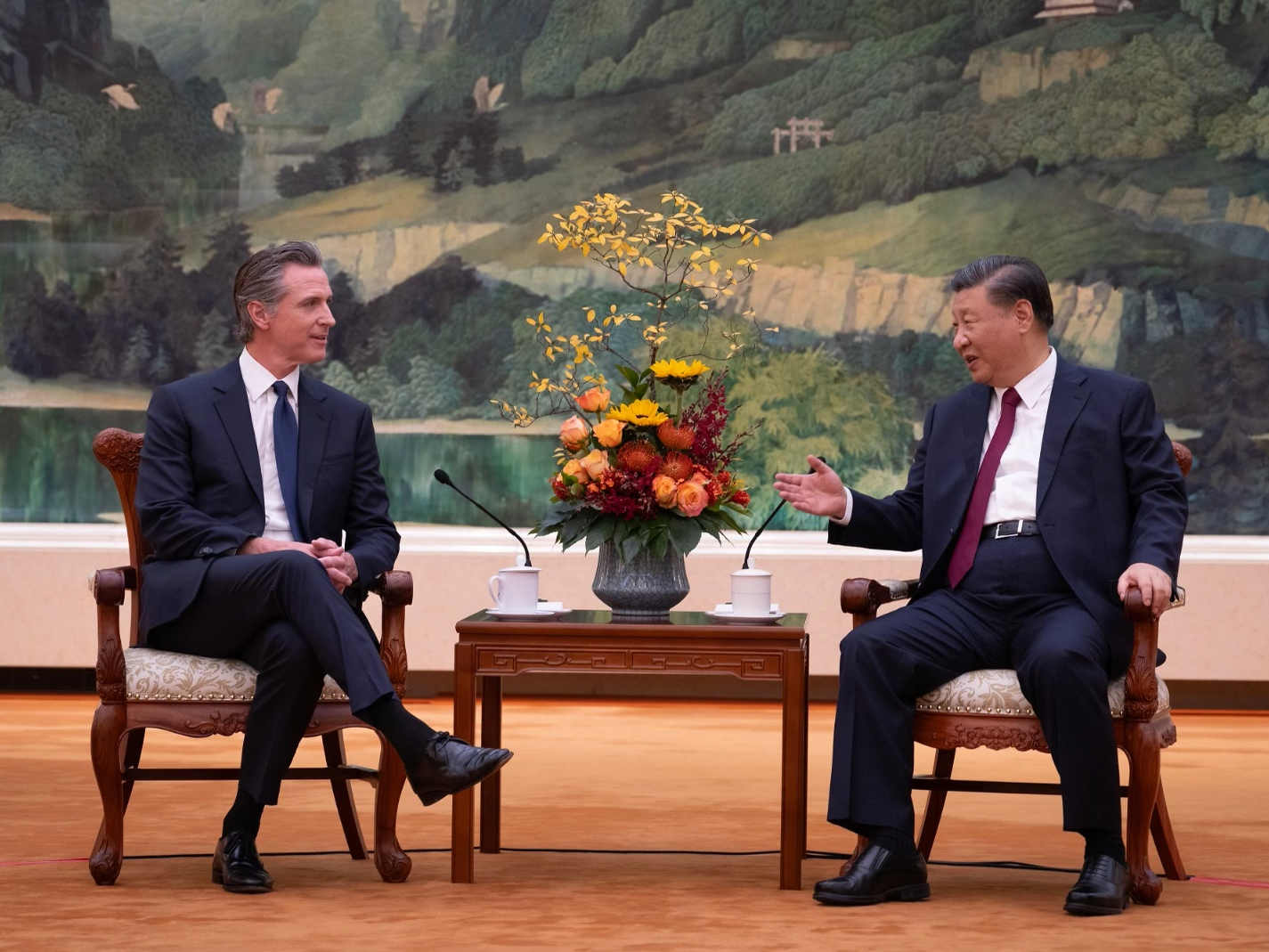
During the Civil War, Democrats attempted to use cotton and private shipping companies to undermine American security and gain support in Europe for the Confederacy. Today, the blue state of California is leveraging Berkeley to build ties with China and undermine America’s qualitative advantages in dual-use technology and to undermine energy independence. On the West Coast, the University of California system, one of America’s largest public university networks, is actively jeopardizing both with its ties to China’s Tsinghua University. Despite the recent announcement by UC Berkeley that it was severing ties with Tsinghua and the Tsinghua-Berkeley Shenzhen Institute (TBSI), Berkeley’s ties with Tsinghua in the form of the California-China Climate Institute continue to undermine energy affordability and sovereignty.
Tucked away from bombastic geopolitics, a quiet game of cat and mouse is playing out at universities between American college administrators seeking Chinese cash, the Chinese Communist Party (CCP) seeking access to American technology, and Congress’s House Select Committee on the CCP pressuring higher education to sever ties with America’s most dangerous adversary. Over the last three years, the Committee’s letters have scuttled programs like Alfred University’s Confucius Institute, which was housed next to hypersonic missile research, Georgia Tech’s Shenzhen Institute, and the University of Michigan’s joint program with Shanghai Jiao Tong University. This month, the watchdog group Open the Books succeeded in using information from the Committee to help exert pressure on Berkeley to end the Tsinghua Berkeley Shenzhen Institute after it was discovered that Berkeley had failed to disclose $87 million from China it had received to help run the China-based nonprofit. For its part, the Committee noted in a report last year that “joint education institutes like UC Berkeley’s partnership with Tsinghua University” act as “conduits for transferring critical U.S. technologies and expertise to China, including to entities linked to China’s defense machine and the security apparatus it uses to facilitate human rights abuses.”
[RELATED: ‘Alarming’: House Report Warns of China’s Tie to U.S. Universities]
Universities are not city-states that enjoy their own sovereignty; however, they engage in activities that mimic independent polities. The closure of TBSI shows that Congress and watchdog groups have thus far been ratcheting up victories in shuttering joint Chinese programs that threaten American interests. What happens when a state gives such a joint Chinese program its own blessing and enshrines support for it into law? Questions such as this raise the specter of Tenth Amendment legal battles and the 1860s when Democrats in the Confederacy engage in their own overtures to Europe to support their war effort. As far-fetched as this parallel may seem, UC Berkeley’s California-China Climate Institute, which operates in partnership with Tsinghua University, is protected by California law.
In 2017, then-California Governor Jerry Brown met with Chinese business leaders to expand cooperation on climate change and to accelerate a transition to “zero-emission” vehicles. In 2021, Sacramento passed Assembly Bill 39 (AB 39) to establish the “California-China Climate Institute.” Signed into law by California governor Gavin Newsom, AB 39 states that it will leverage higher education and business to “shape” national climate policy in pursuit of reaching the goals laid out in the Paris Agreement on climate change. The law notably and explicitly includes China, stating that it will support “high-level subnational climate dialogue between top government, business, and climate leaders from throughout the United States and China with respect to climate policy, investment, and finance.” Additionally, the law lays out how it creates a constellation of influential institutions by:
Providing training to Californian and Chinese researchers, scientists, technical experts, policymakers, and other leaders to advance critical climate and environmental policies, including, but not necessarily limited to, air quality, carbon pricing, carbon emissions, clean energy, and innovation.
Newsom himself signed an order mandating a “phase out” of non-electric vehicles in 2020. Not coincidentally, the president of a subsidiary of the Chinese electric vehicle (EV) manufacturer BYD donated $40,000 to Newsom’s campaign for governor. The California-China Climate Institute itself is housed at UC Berkeley, where its chairman, Jerry Brown—yes, the former governor—oversees its executive team.
[RELATED: We’re Not Just Talking About Tea Anymore]
On the surface, the work of the California-China Climate Institute is like that of any other institute or think tank, except that it is explicitly bilateral between China and California and aims to promote EV mandates. Its reports all focus on reducing carbon and methane emissions through the force of policy. The Institute uses UC Berkeley’s law school to formulate potential policies, regulations, and laws to pursue these goals. The institute’s research output talks at length about “harmonizing” policy goals between Beijing and California and includes how to force a market change to coerce demand for EVs using credits for automakers.
What is left unsaid in the California-China Climate Institute’s research is how EVs are disproportionately favored by the wealthy or how taxpayer subsidies artificially inflate a market based on mandates. In the case of California, the EV mandate ironically coerces electrification just as the state cannot currently meet its own electricity needs. Taking a step back, it is not difficult to see why California is resorting to coercive policy that lacks economic sense, disproportionately hurts lower-income people, and assists Beijing as the world’s near-monopoly holder of the rare-earth minerals needed for EV manufacturing in the first place. Sacramento is engaging in subnational diplomacy with Beijing through UC Berkeley and undermining energy independence and the economy in the process of doing so.
The House Committee on the CCP has more work cut out for it.
Follow Minding the Campus on X for updates, and explore more on China here.
Image: “Beijing Meetings” by California Governor on Flickr
Joe McCarthy was drunk — a hopeless alcoholic by the standards of a time when everyone drank like a fish — but he wasn’t wrong. And it’s going to take something along those lines to deal with Chinese subversion.